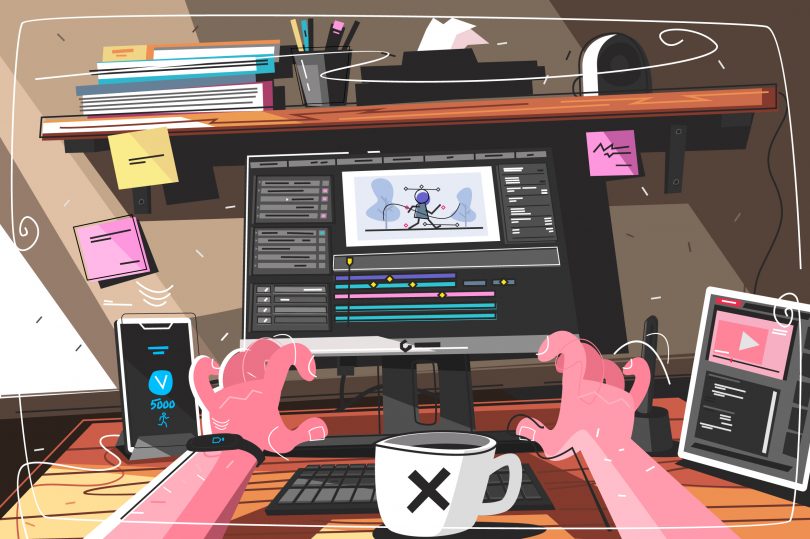As the gig economy continues to gain popularity, it’s rare that a career in 2020 has only one path, and the world of animation is no different.
Some options are easier given the Coronavirus pandemic and online learning opportunities, but in a world stuck at home, visual entertainment is actually staying pretty steady.
Many companies are slowly but surely preparing for a re-launch into the real world when Coronavirus finally runs its course, and with that, comes a desire for designers and animators in the corporate setting, but certainly options are still aplenty in the creative/entertainment sectors as well.
Here are a few tips and tools for starting your animation career:
Work
Even if it’s for free, you should start building your portfolio the second you decide to pursue a career in animation.
As you create more, it’s okay to remove some things that don’t hold up to the standards of your work after improving, but always set yourself up to have as much work available as possible when you start talking to employers or potential freelance clients.
There is always a line to toe when it comes to charging people as you start your career, and you don’t want to work for free forever, as that wouldn’t make your pursuit a “career” and it also hurts the industry as a whole.
Weigh your opportunities wisely, and don’t forget that things from school are generally portfolio-worthy even if it was technically an assignment.
Get Educated
If you plan on pursuing a steady paycheck animation job, a degree is all but necessity in this day and age.
Many schools offer programs specifically in animation. Of those, most offer options for a BA or BS depending on whether you want to be on the more creative side, or on the tech/science side of pushing the industry forward.
These programs will give you the knowledge needed to qualify you for a wide breadth of jobs from digital animation to cartoon drawing, and a little bit of everything in between.
Empower Yourself

If you’re an inspired hobbyist who doesn’t want to take the dive into formal education and want to take the side-hustle-turned-career-route, there are options there, as well, but they start with having a big portfolio, as mentioned in the first section.
You also have to be willing to navigate freelance taxes and force yourself to look for work every week, as most freelance animation jobs are short-term (but tend to pay well hourly, so remember that as you’re searching for work).
In addition to a wonderful portfolio, those seeking work without pursuing a degree also need to make themselves as professional as possible.
Educate yourself on communication practices, especially if you have been out of the regular workforce since before COVID changes.
Zoom meetings, online project management tools, and expert written communication are all musts in the freelance world, as are these tools:
- Adobe Character Animator – Great product from a trusted name. Highly used.
- Synfig Studio – Synfig is a free download to help develop user’s 2D animation skills. There are upgrades available if, indeed, this style becomes your go-go.
- Stop Motion Studio – Another good tool that you can utilize as a beginner and a pro is Stop Motion Studio. A popular animation style, and an easy-to-use platform.
Through strategic career planning, hard work and a good hustle, you could even consider launching your own business in animation services.
Be Wary of Change
In addition to the obvious changes that will occur when COVID finally finishes rearing its angry head, good animators must also stay abreast of changes in the industry.
Finding a good blog or journal that provides frequent updates on your niche in the industry will help ensure you stay employed whether it be as a freelancer or part of a team.


